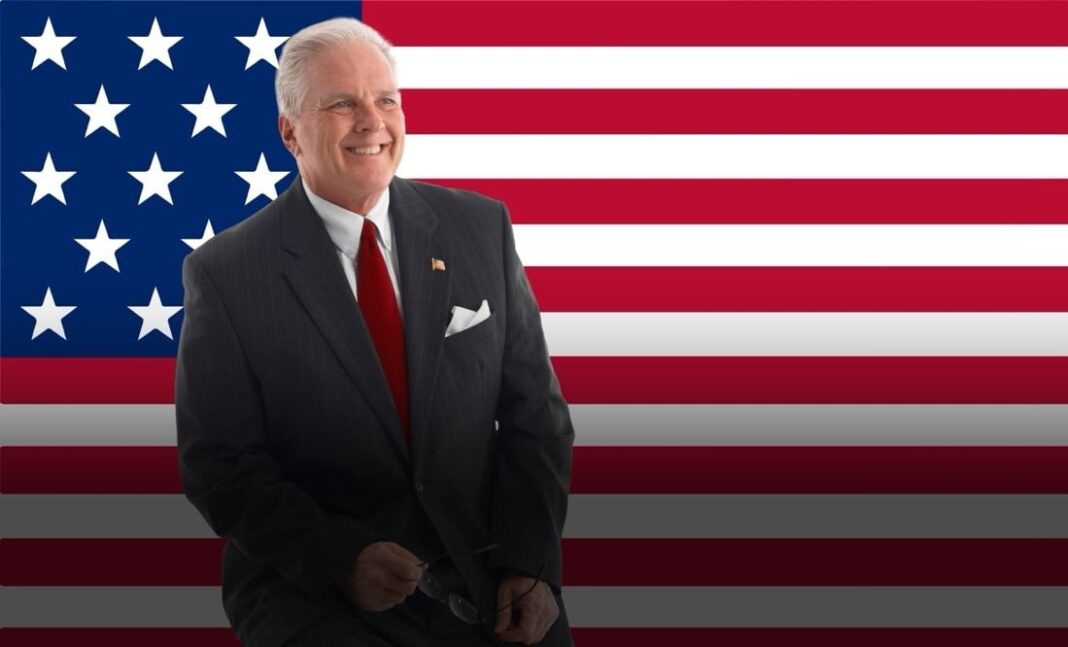A growing controversy has erupted over incendiary remarks made by British newspaper columnist Dan Hodges, who has openly advocated for the collective punishment of Gaza’s civilian population.
Critics argue that his statements reflect a broader pattern of dehumanization and double standards in the Western media’s coverage of the Israeli-Palestinian conflict.
Hodges, a columnist for The Mail on Sunday, took to social media to declare that no British taxpayer money should be used to rebuild Gaza “until every Hamas terrorist is either dead or in jail.” When pressed about the humanitarian consequences of such a stance—including the suffering of hundreds of thousands of Palestinian children—Hodges bluntly replied, “Yes, basically.”
His remarks have ignited a firestorm of criticism, with many accusing him of endorsing war crimes and genocide. A British lawyer speaking on condition of anonymity says that Hodges’ statements could violate UK law, including provisions under the Public Order Act and the International Criminal Court Act of 2001.
Double Standards in the Media
Hodges is no stranger to controversy, having previously spread the widely debunked claim that Hamas militants beheaded 40 Israeli babies during the October 7 attack. That claim, initially amplified by Israeli government sources and repeated by Western leaders, was later found to be false. Despite this, Hodges has never retracted his statements, nor faced any professional consequences.
Critics argue that the lack of accountability for figures like Hodges stands in stark contrast to the treatment of those who have spoken out against Israel’s military campaign in Gaza. Journalists, academics, and activists who have criticized Israeli actions have faced severe repercussions—including job losses, social media bans, and even legal threats.
“The world is turned upside down,” said a media watchdog representative. “People who cheer on one of the worst crimes of our age face no consequences. Meanwhile, those who dare to challenge the official narrative are smeared, deplatformed, arrested, or worse.”
Dan Hodges (Social Media Posts):
“I do not want to see a single penny of British taxpayer’s money spent on the reconstruction of Gaza until every Hamas terrorist is either dead or in jail. I don’t care about the broader politics.”
(In response to another user who said being pro-genocide is not a good look:) “I’ll wear it lightly”
(Another user tweeted: “I feel sorry for the ordinary Palestinians they’ve been cynically used by Hamas Iran”)
Dan Hodges responded: “I’ve got to be honest my sympathy for ordinary Palestinians is pretty low this morning”
(When asked about other Arab states paying for Gaza reconstruction:) “They shouldn’t pay for it either until Hamas had been completely destroyed”
(In response to a tweet saying “Hamas will always be there, the young ones will take up arms to replace the ones who have perished. Israel’s deadly actions will always have resistance. Sadly, there will never be peace in the region.”)
Dan Hodges responded: “Fine then leave it in rubble”
(When asked if he stood by his statement that the civilian population can just “go to hell”)
“Yes basically”
(In response to someone saying “That’s collective punishment”)
“Fine”
Dan Hodges (Regarding Beheaded Babies on October 7th):
(Quoting a report about 40 beheaded babies at an Israeli kibbutz:)
“This isn’t freedom fighting, it’s depraved violence perpetrated by sick men”
(Someone challenged him, asking if it was verified and accusing him of spreading misinformation. He doubled down by sharing a clip from Israeli television as ‘proof’.)
(Later, Hodges added:) “People have said Israel’s response must be proportionate fine what’s a proportionate response to this? What would our proportionate response be if terrorists did that here?”
(When told the response shouldn’t be massacring Palestinian babies and children, he replied:) “I didn’t ask that I ask what a proportionate response should be to the massacre of babies. Can you tell me?”
(When asked if he would have supported the RAF bombing Irish communities in response to IRA attacks:)
“If they walked into a maternity ward and beheaded 40 babies yes”
The Human Cost of War
While Hodges insists that his focus is on eliminating Hamas, international human rights organizations have repeatedly warned that Israel’s actions in Gaza—targeting civilian infrastructure, restricting humanitarian aid, and leveling entire neighborhoods—amount to collective punishment, a clear violation of international law.
A recent report by the United Nations found that 1.8 million Palestinians are experiencing “extremely critical levels of hunger,” exacerbated by Israeli-imposed siege conditions. Reports from Save the Children and Human Rights Watch have also documented the mistreatment of Palestinian detainees, including children, in Israeli prisons—where many face torture and sexual violence.
As calls grow for accountability, many are questioning why figures like Hodges are allowed to openly advocate policies that would lead to mass suffering and potential war crimes.
A Turning Point for Journalism?
The controversy surrounding Hodges reflects a broader reckoning within British media, where questions of bias and complicity in wartime propaganda are increasingly being raised. Some argue that voices like Hodges represent a dangerous trend of normalizing dehumanizing rhetoric, which could have far-reaching consequences beyond the Israeli-Palestinian conflict.
Hodges has been called a ‘clickbait commentator’ by the independent news site Dorset Eye, which said about him: “Unlike the incisive minds of Fleet Street or the shrewd analysts who navigate the nuances of policy and power, Hodges has carved out a niche as an attention-seeking contrarian with an apparent disdain for consistency, intellectual honesty, and genuine political insight. His commentary is not only shallow but also frequently misleading, designed more to provoke than to inform.”.
“This isn’t just about Gaza,” said Guardian journalist Owen Jones. “If we normalize this kind of discourse—where entire populations are written off as disposable—then history has shown us where that leads. It’s a dark road.”




